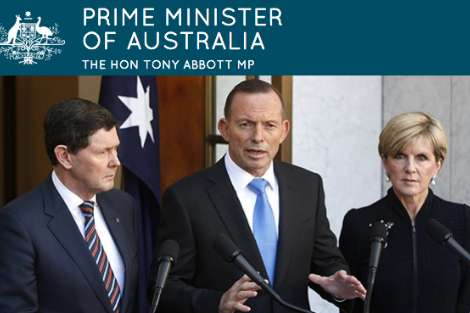Keywords: Liberal Party
There are more than 200 results, only the first 200 are displayed here.
-

AUSTRALIA
- John Warhurst
- 24 March 2016
4 Comments
Media reaction to Malcolm Turnbull's decision to recall Parliament on 18 April was remarkably glowing. The move was acclaimed as a masterstroke and his decisiveness applauded. However the path Turnbull has laid out and the roadblocks that still remain is actually more complex. His plan may be too clever by half, and reflects a misreading of the nature of modern Liberal factional politics. His internal conservative party opponents are cultural warriors, not old-style economic advocates.
READ MORE 
-

AUSTRALIA
- Binoy Kampmark
- 23 March 2016
19 Comments
The idea that these laws are, as Twomey writes, 'more conducive to representing the genuine choice of the people in electing their Senate' is untrue. It is a view expressed by Greens leader Senator Richard Di Natale, who suggested 'the Senate that's delivered after the next election is the one people vote for'. What these voting reforms actually serve to do is give the false impression of eliminating manipulation while diluting Australia's political base in favour of monochrome party politics.
READ MORE 
-

AUSTRALIA
- Frank Brennan
- 21 March 2016
10 Comments
Rui Maria de Araujo, the prime minister of Timor-Leste, wrote to Malcolm Turnbull inviting him to turn a new leaf in the Australia-Timor relationship. It was not to be. But the Timorese are well used to winning the hearts and minds of Australians even when our political leaders appear to be tone deaf to their pleas. This time they have convinced the Labor Party about the justice of their cause, and there is every chance that the Australian community will rally behind them after the federal election.
READ MORE 
-

AUSTRALIA
- Fatima Measham
- 14 March 2016
10 Comments
The debate over the Coalition's proposed senate voting reforms has highlighted the inter-party brokering that brings candidates into office. Yet if representative democracy were predicated on transparency, then another area deserves scrutiny: preselection. The mechanism for choosing party representatives clearly relies on powerful backers - politics - rather than merit. That is an obvious thing to say. But it carries repercussions for governance with which we have yet to grapple.
READ MORE 
-

INTERNATIONAL
- J. R. Hennessy
- 19 February 2016
24 Comments
The aftershocks of the late-century push for liberalisation and the GFC have bred generations of dislocated voters who seek answers outside of the limited solutions of centrist governance. This provides ample opportunity for true progressive change, as seen in Europe and Latin America, and now the US and UK. Where's Australia? Nowhere to be seen. It is hard to imagine a truly progressive candidate emerging from our ossified political structures. There are a few reasons for this.
READ MORE 
-

AUSTRALIA
- Kerry Murphy
- 05 February 2016
6 Comments
The practice of governments using the Parliament to change the law in order to win court cases is unfair, as only one party to a court case has the power to do this. The M68 case decided on Wednesday, which challenged the detention and transfer to Nauru of asylum seekers, was effectively won by the government because they changed the law retrospectively to make sure they would win. No retrospective fix will be possible for people who fled persecution only to face a punitive and hostile policy.
READ MORE 
-

INTERNATIONAL
- Fatima Measham
- 05 February 2016
9 Comments
The Bernie Sanders phenomenon in the US, like Corbyn in the UK and Podemos in Spain, demonstrates the rhetorical potency of renewal; of politics not as usual. It is the sort of thing that resonates with disaffected young people. While it is not entirely sensible to extrapolate developments in the US to Australia, it is worth speculating on the impact of our own changing demographics. Are the major parties equipped to take advantage of these shifts? Are they appealing to a new Australia that is already here?
READ MORE 
-

AUSTRALIA
- Andrew Hamilton
- 14 January 2016
9 Comments
It is hard to comment on Tony Abbott's demise without being splattered by the schoolyard mud. But we should begin by sparing a thought for the man himself in this time of humiliation. He has given his life to the Liberal Party, and to be disowned as leader by it is surely devastating.
READ MORE 